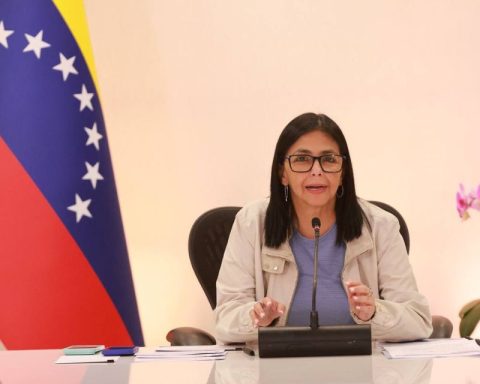
After a slow descent, oil prices climbed again above US$85, because Saudi Arabia, Iraq and other countries of the Organization of Petroleum Exporting Countries (Opec) decided to cut their production.
(Read: The IMF alert: 2% of world GDP, at risk from the US and China).
This decision has a strong impact in countries like Colombia, whose economy depends to a large extent on this hydrocarbon. In the country there are several possible effects of this behavior, from an improvement in the current account balance, to a worsening in the deficit of the Fuel Price Stabilization Fund (FEPC) and an increase in the cost of aviation fuel.
Munir Jalil, director of economic research at BTG Pactual, explained that in principle, Being the main export product, it has a positive impact on the Government’s accounts.
(Also: How much could the price of the dollar continue to fall and why would that happen?).
He pointed out that this allows a greater entry of dollars into the economy; in addition to leading to better results for Ecopetrol. “This translates into higher dividends and higher tax payments”he added.
However, this also leads to a greater differential between the price of the liquid fuels at their local price compared to international. This means that the Government must subsidize a greater part in the price of gasoline and Acpm. Jalil highlighted that although the Ministry of Mines and Energy has come up with a policy of increasing gasoline prices, the Acpm has not made any changes. This means that although the increases will partially cushion the effects of increases in gasoline, this will not happen in diesel.
The expert pointed out that the Government had already estimated in their accounts the destination of 1.7% of GDP for the payment of this Fundwith which it is probable that with the increases they will still reduce resources, since the destination is the same as that of 2022, when the price of a barrel of crude oil was above US$100 and liquid fuels did not rise.
Impact on airlines
In the midst of the air crisis that lives in Colombia due to the difficulties to operate Viva and Ultra Air, the price of aircraft fuels has played a crucial role, due to the sharp increase in costs for companies.
(Keep reading: Uncertainty over Opec+ announcements leaves oil close mixed).
“The cost of aviation fuel is having a huge impact on the sector. In fact, this line had an increase of 41% in 2022. Normally, fuel has been rising between 20% and 30% internationally. This input has a double impact, the price increase and the payment in dollars”, said Paula Bernal, president of Iata in Colombia (International Air Transport Association).
This factor was highlighted at the time by Félix Antelo, now the former president of Viva, as one of the factors that has played against the airline’s finances and led them to request a financial rescue with the integration with Avianca.
This is not an isolated case, since Ultra also pointed to this reason as one of the reasons for its suspension. “Adverse macroeconomic situations for the industry, such as the increase in the cost of fuel and the exchange rate, generated a substantial increase in costs for the airlines, which led them to operate at a deficit in recent months.”, they stated.
This has led to some companies look for alternatives such as buying fuel in advance. Stefan Gumuseli, general manager of Air France, pointed out that one of the strategies they have implemented to deal with this situation is hedging, which, although it has risks, in this context has been positive.
“By 2022, the price of a cubic ton of fuel was US$1,166, while we negotiated it for US$1,033, which led us to save US$1,000 million,” said Gumuseli.
BRIEFCASE














